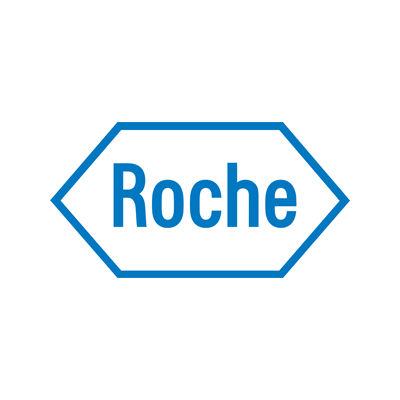预约演示
更新于:2025-05-07
CEA x CD40
更新于:2025-05-07
关联
3
项与 CEA x CD40 相关的药物作用机制 CD40抑制剂 [+1] |
在研机构 |
原研机构 |
在研适应症 |
非在研适应症- |
最高研发阶段临床前 |
首次获批国家/地区- |
首次获批日期1800-01-20 |
作用机制 CD40激动剂 [+1] |
在研适应症 |
非在研适应症- |
最高研发阶段临床前 |
首次获批国家/地区- |
首次获批日期1800-01-20 |
作用机制 CD40激动剂 [+1] |
在研机构- |
原研机构 |
在研适应症- |
非在研适应症 |
最高研发阶段无进展 |
首次获批国家/地区- |
首次获批日期1800-01-20 |
100 项与 CEA x CD40 相关的临床结果
登录后查看更多信息
100 项与 CEA x CD40 相关的转化医学
登录后查看更多信息
0 项与 CEA x CD40 相关的专利(医药)
登录后查看更多信息
33
项与 CEA x CD40 相关的文献(医药)2024-09-01·Skin Research and Technology
The causal relationship between immune cells and atopic dermatitis: A bidirectional Mendelian randomization study
Article
作者: Zhu, Xu ; Wu, Wenzhong
2022-11-01·Journal for ImmunoTherapy of Cancer
Bispecific antibodies targeting CD40 and tumor-associated antigens promote cross-priming of T cells resulting in an antitumor response superior to monospecific antibodies
Article
作者: Sundstedt, Anette ; Ellmark, Peter ; Rosén, Anna ; von Schantz, Laura ; Levin, Mattias ; Varas, Laura ; Greiff, Lennart ; Lindstedt, Malin ; Ljung, Lill ; Carlsson, Fredrika ; Sakellariou, Christina ; Bölükbas, Deniz ; Gomez Jimenez, David ; Werchau, Doreen ; Celander, Mona ; Deronic, Adnan ; Hägerbrand, Karin ; Thagesson, Mia ; Säll, Anna ; Nyesiga, Barnabas ; Smedenfors, Kristine
2022-03-01·Journal for ImmunoTherapy of Cancer2区 · 医学
The tumor-targeted CD40 agonist CEA-CD40 promotes T cell priming via a dual mode of action by increasing antigen delivery to dendritic cells and enhancing their activation
2区 · 医学
ArticleOA
作者: Mazumdar, Alekhya ; Dürr, Harald ; Trumpfheller, Christine ; Sum, Eva ; Romero, Pedro J ; Umaña, Pablo ; Rapp, Moritz
36
项与 CEA x CD40 相关的新闻(医药)2025-04-25
·医药笔记
▎Armstrong2025年4月23日,信达生物在药物临床试验登记与信息公示平台网站上注册了IBI3020的国际化一期临床试验。IBI3020为信达生物研发的CEA靶向双毒素ADC。IBI3020此次启动为中美一期临床,适应症包括肠癌、非鳞状非小细胞肺癌等实体瘤。该一期临床试验国内部分在山东省肿瘤医院进行,由于金明主任与孙玉萍主任主持。该国际化一期临床试验计划入组500例受试者,其中国内225例,国外275例。总结信达生物着力布局新一代ADC技术平台,包括双靶点ADC、双毒素ADC等,已有3款双靶点ADC(PD-L1/Trop2、EGFR/B7H3、EGFR/HER3),1款双毒素ADC(CEA)推进到临床阶段。Armstrong技术全梳理系列GPRC5D靶点全梳理;CD40靶点全梳理;CD47靶点全梳理;补体靶向药物技术全梳理;补体药物:眼科治疗的重要方向;Claudin 6靶点全梳理;Claudin 18.2靶点全梳理;靶点冷暖,行业自知;中国大分子新药研发格局;被炮轰的“me too”;佐剂百年史;胰岛素百年传奇;CUSBEA:风雨四十载;中国新药研发的焦虑;中国生物医药企业的研发竞争;中国双抗竞争格局;中国ADC竞争格局;中国双抗技术全梳理;中国ADC技术全梳理;Ambrx技术全梳理;Vir Biotech技术全梳理;Immune-Onc技术全梳理;亘喜生物技术全梳理;康哲药业技术全梳理;科济药业技术全梳理;恺佧生物技术全梳理;同宜医药技术全梳理;百奥赛图技术全梳理;腾盛博药技术全梳理;创胜集团技术全梳理;永泰生物技术全梳理;中国抗体技术全梳理;德琪医药技术全梳理;德琪医药技术全梳理2.0;和铂医药技术全梳理;荣昌生物技术全梳理;再鼎医药技术全梳理;药明生物技术全梳理;恒瑞医药技术全梳理;豪森药业技术全梳理;正大天晴技术全梳理;吉凯基因技术全梳理;基石药业技术全梳理;百济神州技术全梳理;百济神州技术全梳理第2版;信达生物技术全梳理;信达生物技术全梳理第2版;中山康方技术全梳理;复宏汉霖技术全梳理;先声药业技术全梳理;君实生物技术全梳理;嘉和生物技术全梳理;志道生物技术全梳理;道尔生物技术全梳理;尚健生物技术全梳理;康宁杰瑞技术全梳理;科望医药技术全梳理;科望医药技术全梳理2.0;岸迈生物技术全梳理;礼进生物技术全梳理;康桥资本技术全梳理;余国良的抗体药布局;荃信生物技术全梳理;安源医药技术全梳理;三生国健技术全梳理;仁会生物技术全梳理;乐普生物技术全梳理;同润生物技术全梳理;宜明昂科技术全梳理;派格生物技术全梳理;迈威生物技术全梳理;Momenta技术全梳理;NGM技术全梳理;普米斯生物技术全梳理;普米斯生物技术全梳理2.0;三叶草生物技术全梳理;贝达药业抗体药全梳理;泽璟制药抗体药全梳理;恒瑞医药抗体药全梳理;齐鲁制药抗体药全梳理;石药集团抗体药全梳理;豪森药业抗体药全梳理;华海药业抗体药全梳理;科伦药业抗体药全梳理;百奥泰技术全梳理;凡恩世技术全梳理。
抗体药物偶联物临床1期临床2期
2025-02-25
·医药笔记
▎Armstrong
2025年2月24日,Summit Therapeutics公布2024年财报,披露了研发管线最新进展,同时宣布与辉瑞达成临床合作,开展PD-1/VEGF+ADC联合治疗实体瘤的临床探索。
根据合作协议,Summit Therapeutics提供临床用的依沃西单抗,辉瑞负责临床运营,Summit和辉瑞同时监督这些临床试验的推进,预计今年中开始启动。
Summit Therapeutics围绕依沃西单抗开展了3项全球三期临床试验。HARMONi针对EGFR突变NSCLC的二线及以后治疗,预计今年中披露顶线数据。
HARMONi-3为依沃西单抗+化疗一线治疗NSCLC。
HARMONi-7为PD-L1高表达NSCLC患者的一线治疗。
辉瑞在收购Seagen之后有多款临床阶段ADC管线,包括CD30 ADC、Nectin-4 ADC、HER2 ADC、ITGB6 ADC、TF ADC、CD228 ADC、PD-L1 ADC、CEA ADC、间皮素ADC等。
总结
依沃西单抗在中国三期临床中已经在PFS终点头对头击败Keytruda,全球三期临床的进展更是受到全球范围内的广泛关注,跨国药企已经纷纷加入这场后PD-1时代的迭代药物开发竞争中。默沙东选择重金引进礼新医药的PD-1/VEGF双抗,BioNTech收购普米斯生物获得PD-L1/VEGF双抗,辉瑞则选择推进其ADC管线与Summit/康方生物的PD-1/VEGF双抗的联合治疗临床探索。
Armstrong技术全梳理系列
GPRC5D靶点全梳理;
CD40靶点全梳理;
CD47靶点全梳理;
补体靶向药物技术全梳理;
补体药物:眼科治疗的重要方向;
Claudin 6靶点全梳理;
Claudin 18.2靶点全梳理;
靶点冷暖,行业自知;
中国大分子新药研发格局;
被炮轰的“me too”;
佐剂百年史;
胰岛素百年传奇;
CUSBEA:风雨四十载;
中国新药研发的焦虑;
中国生物医药企业的研发竞争;
中国双抗竞争格局;
中国ADC竞争格局;
中国双抗技术全梳理;
中国ADC技术全梳理;
Ambrx技术全梳理;
Vir Biotech技术全梳理;
Immune-Onc技术全梳理;
亘喜生物技术全梳理;
康哲药业技术全梳理;
科济药业技术全梳理;
恺佧生物技术全梳理;
同宜医药技术全梳理;
百奥赛图技术全梳理;
腾盛博药技术全梳理;
创胜集团技术全梳理;
永泰生物技术全梳理;
中国抗体技术全梳理;
德琪医药技术全梳理;
德琪医药技术全梳理2.0;
和铂医药技术全梳理;
荣昌生物技术全梳理;
再鼎医药技术全梳理;
药明生物技术全梳理;
恒瑞医药技术全梳理;
豪森药业技术全梳理;
正大天晴技术全梳理;
吉凯基因技术全梳理;
基石药业技术全梳理;
百济神州技术全梳理;
百济神州技术全梳理第2版;
信达生物技术全梳理;
信达生物技术全梳理第2版;
中山康方技术全梳理;
复宏汉霖技术全梳理;
先声药业技术全梳理;
君实生物技术全梳理;
嘉和生物技术全梳理;
志道生物技术全梳理;
道尔生物技术全梳理;
尚健生物技术全梳理;
康宁杰瑞技术全梳理;
科望医药技术全梳理;
科望医药技术全梳理2.0;
岸迈生物技术全梳理;
礼进生物技术全梳理;
康桥资本技术全梳理;
余国良的抗体药布局;
荃信生物技术全梳理;
安源医药技术全梳理;
三生国健技术全梳理;
仁会生物技术全梳理;
乐普生物技术全梳理;
同润生物技术全梳理;
宜明昂科技术全梳理;
派格生物技术全梳理;
迈威生物技术全梳理;
Momenta技术全梳理;
NGM技术全梳理;
普米斯生物技术全梳理;
普米斯生物技术全梳理2.0;
三叶草生物技术全梳理;
贝达药业抗体药全梳理;
泽璟制药抗体药全梳理;
恒瑞医药抗体药全梳理;
齐鲁制药抗体药全梳理;
石药集团抗体药全梳理;
豪森药业抗体药全梳理;
华海药业抗体药全梳理;
科伦药业抗体药全梳理;
百奥泰技术全梳理;
凡恩世技术全梳理。
抗体药物偶联物财报临床3期并购临床失败
2025-02-05
·医药笔记
▎Armstrong
2025年2月4日,辉瑞公布2024年财报,全年营收636亿美元,去除新冠产品影响同比增长12%,高于此前预期的9-11%。
值得注意的是,辉瑞对2024年进行了29亿美元的无形资产减值,包括终止开发B7H4 ADC新药Felmetatug vedotin的10亿美元减值,以及Tukysa的4亿美元减值,荣昌生物引进的HER2 ADC新药纬迪西妥单抗的2亿美元减值(竞争加剧引发)。
总结
辉瑞430亿美元收购Seagen之后,除了已经上市的Adcetris、Padcev,后续ADC管线还有PD-L1 ADC、CEA ADC、CD30 ADC、Mesothelin ADC等均处于早期临床阶段。B7H4 ADC方面,翰森制药的B7H4 ADC授权给葛兰素史克,映恩生物的B7H4 ADC授权给百济神州。
Armstrong技术全梳理系列
GPRC5D靶点全梳理;
CD40靶点全梳理;
CD47靶点全梳理;
补体靶向药物技术全梳理;
补体药物:眼科治疗的重要方向;
Claudin 6靶点全梳理;
Claudin 18.2靶点全梳理;
靶点冷暖,行业自知;
中国大分子新药研发格局;
被炮轰的“me too”;
佐剂百年史;
胰岛素百年传奇;
CUSBEA:风雨四十载;
中国新药研发的焦虑;
中国生物医药企业的研发竞争;
中国双抗竞争格局;
中国ADC竞争格局;
中国双抗技术全梳理;
中国ADC技术全梳理;
Ambrx技术全梳理;
Vir Biotech技术全梳理;
Immune-Onc技术全梳理;
亘喜生物技术全梳理;
康哲药业技术全梳理;
科济药业技术全梳理;
恺佧生物技术全梳理;
同宜医药技术全梳理;
百奥赛图技术全梳理;
腾盛博药技术全梳理;
创胜集团技术全梳理;
永泰生物技术全梳理;
中国抗体技术全梳理;
德琪医药技术全梳理;
德琪医药技术全梳理2.0;
和铂医药技术全梳理;
荣昌生物技术全梳理;
再鼎医药技术全梳理;
药明生物技术全梳理;
恒瑞医药技术全梳理;
豪森药业技术全梳理;
正大天晴技术全梳理;
吉凯基因技术全梳理;
基石药业技术全梳理;
百济神州技术全梳理;
百济神州技术全梳理第2版;
信达生物技术全梳理;
信达生物技术全梳理第2版;
中山康方技术全梳理;
复宏汉霖技术全梳理;
先声药业技术全梳理;
君实生物技术全梳理;
嘉和生物技术全梳理;
志道生物技术全梳理;
道尔生物技术全梳理;
尚健生物技术全梳理;
康宁杰瑞技术全梳理;
科望医药技术全梳理;
科望医药技术全梳理2.0;
岸迈生物技术全梳理;
礼进生物技术全梳理;
康桥资本技术全梳理;
余国良的抗体药布局;
荃信生物技术全梳理;
安源医药技术全梳理;
三生国健技术全梳理;
仁会生物技术全梳理;
乐普生物技术全梳理;
同润生物技术全梳理;
宜明昂科技术全梳理;
派格生物技术全梳理;
迈威生物技术全梳理;
Momenta技术全梳理;
NGM技术全梳理;
普米斯生物技术全梳理;
普米斯生物技术全梳理2.0;
三叶草生物技术全梳理;
贝达药业抗体药全梳理;
泽璟制药抗体药全梳理;
恒瑞医药抗体药全梳理;
齐鲁制药抗体药全梳理;
石药集团抗体药全梳理;
豪森药业抗体药全梳理;
华海药业抗体药全梳理;
科伦药业抗体药全梳理;
百奥泰技术全梳理;
凡恩世技术全梳理。
抗体药物偶联物并购财报
分析
对领域进行一次全面的分析。
登录
或

生物医药百科问答
全新生物医药AI Agent 覆盖科研全链路,让突破性发现快人一步
立即开始免费试用!
智慧芽新药情报库是智慧芽专为生命科学人士构建的基于AI的创新药情报平台,助您全方位提升您的研发与决策效率。
立即开始数据试用!
智慧芽新药库数据也通过智慧芽数据服务平台,以API或者数据包形式对外开放,助您更加充分利用智慧芽新药情报信息。
生物序列数据库
生物药研发创新
免费使用
化学结构数据库
小分子化药研发创新
免费使用


